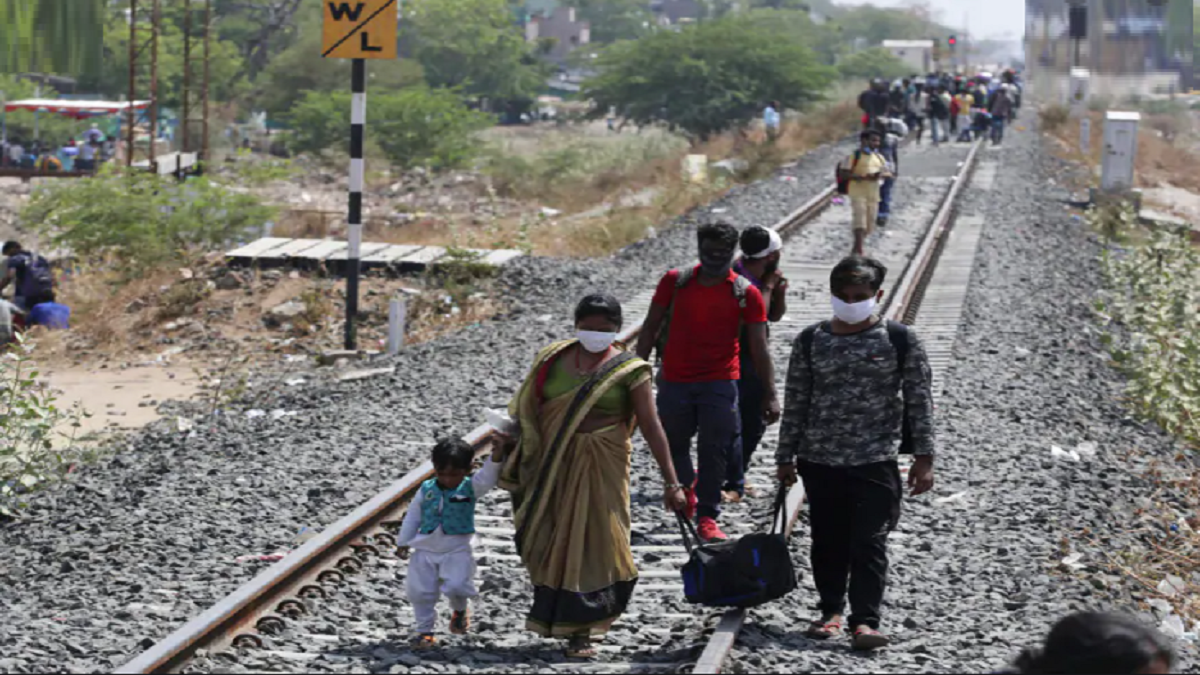


When the lockdown began in March, so did the plight of the migrant workers who lost their livelihood overnight. With time, they also lost their patience and eventually their hope and many hit the road, walking hundreds of kilometers to find their way home. Though India may be in the initial phases of reopening, their plight is far from over. T
here are many miraculous stories that have surfaced about migrant workers on their journey. Fifteen-year-old Jyoti Kumari Paswan had nothing but a second-hand bicycle and a bottle of water as she bravely took her ailing father from Sikandarpur in Haryana to Darbhanga in Bihar. Refusing to give up, Jyoti pedalled approximately 1,200 km till she reached her destination. This heroic young girl has now achieved unexpected fame as the result of her determination and strength.
Shakuntala, a nine-month pregnant migrant worker, walked a distance of 1,000 km from Nashik to Satna. She gave birth to her baby on the side of the road and after just an hour’s rest, continued the journey with her newborn. Shakuntala walked more than 200 km after giving birth to reach her destination. Though her story, like Jyoti’s, is one of triumph and strength, it is also one that marks the tragedy of circumstance. In most cases, women need weeks to recover after childbirth, but this woman, along with many other migrant workers who are trying to find their way home, simply did not have that option.
Though there are many incredible stories of migrant workers who are beating the odds and making their way home, there are even more tragic tales about migrants who were not able to make it home and suffered from the lack of fulfillment of their basic needs. A twelveyear-old girl was walking a 150 km distance from Telangana to her home in Bijapur but died one hour before she reached her village. The CMHO said that it seemed she died due to exhaustion, electrolyte imbalance or dehydration. At a railway station in Bihar, a young child played with a shroud covering his mother, who died of extreme heat, hunger and dehydration. At the same station a two-year-old child died, reportedly from heat and hunger as well. This is the reality that migrant workers across the country are currently facing every day.
Though their tribulations continue, many have lost interest in their stories. Saptarshi Basak witnessed this first-hand as he and others involved in Safar, a project created by students to ensure a safe journey home for migrant workers, attempted to raise donations to help the workers. Basak said that when the idea was first born, they were overwhelmed by the support that the project received. “I didn’t think it would happen in the beginning but we raised Rs 4.5 lakh overnight.” However, in their following attempts, the team encountered more difficulties than initially anticipated. “People thought if it could happen the first time, it would happen again. Now of course we realise it’s much easier the first time because everyone is excited and wants to do something, but it wears out like everything else,” explained Basak. “After the Rs 4.5 lakh, we’ve had one fundraiser and in three days we’ve raised Rs 1.7 lakh. Nobody donates the second time or even bothers to spread the word because it’s not as cool.”
Though our country is currently facing a constant state of change, one thing that has remained constant since the beginning of the lockdown period which began on 25 March is the journey of these workers, whose lives currently hang in the balance. Despite the aid efforts of notable personalities and companies, there are many still far from home and unfortunately, their troubles do not end once they get there, having lost their livelihood and therefore their families’ means of support. Through Safar, Basak is hoping to motivate others around him to take the initiative required to help the migrant workers of our country. He said, “People are dying inside trains and buses are unsafe for women and children. If you’ve got money and contacts you can do a lot for the underprivileged. You don’t even need a job, all you need is a phone.”